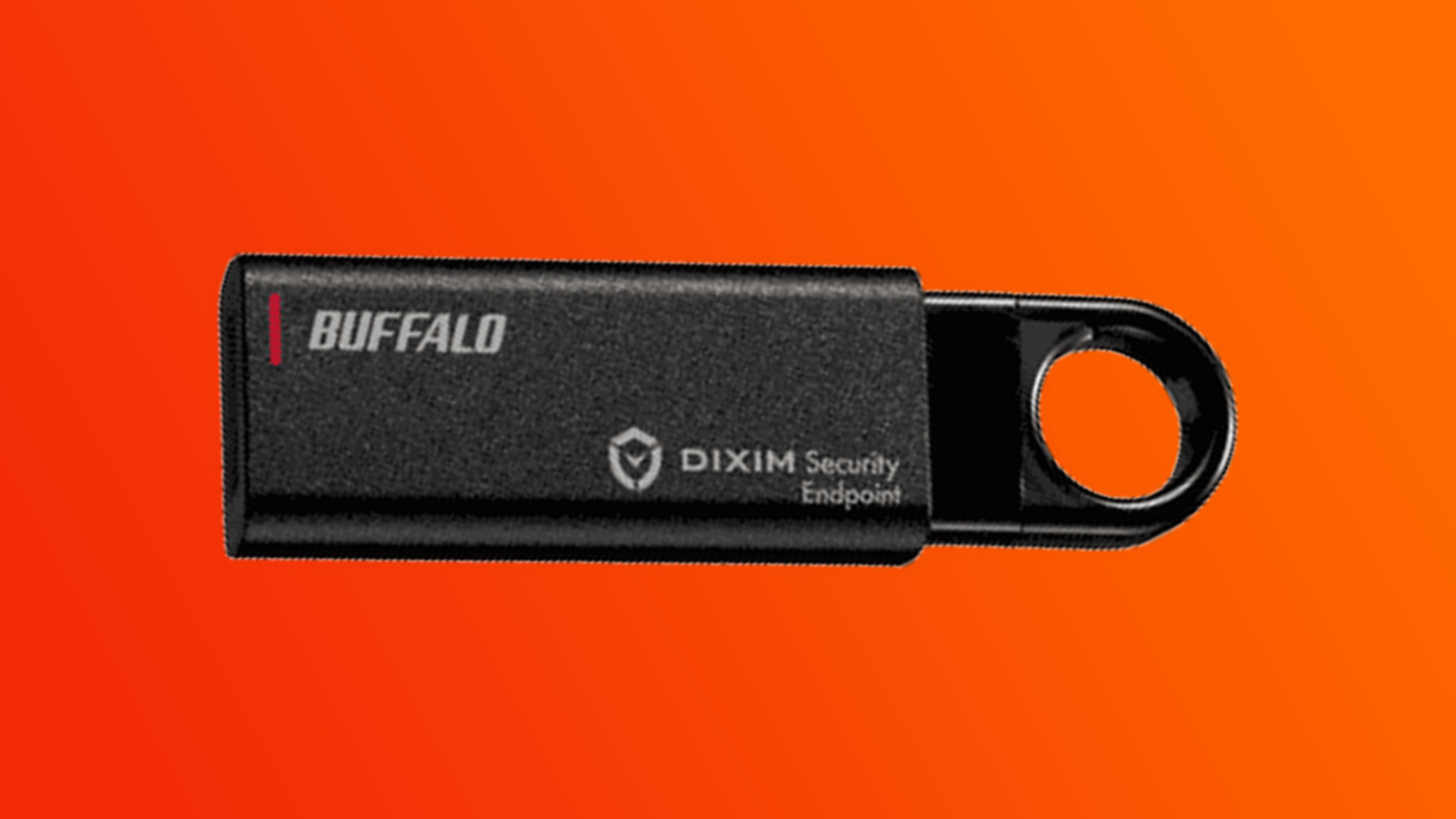
Buffalo's RUF2-KEV may look unassuming, but it's got enviable security credentials.
There’s nothing more innocuous-looking than a USB flash drive. But, as anyone with some basic cybersecurity knowledge knows, they can be one of the easiest ways to infect your devices. The Buffalo RUF3-KEV might be more secure than most, though, as it boasts a whole host of security features to its name.
Buffalo’s DiXiM Security Endpoint is an embedded anti-malware system that monitors files stored on the drive for threats in realtime, working alongside a built-in antivirus scanner that scans transfers for potential nasties (via PC Watch). Not only that, but it features password authentication to keep would-be snoopers out of your important files.
The drive comes in 64 GB, 32 GB and 16 GB capacities, and features a capless “auto-return” sliding design to prevent dust ingression and that fluff from the bottom of your pocket gumming up the works.
The bad news? It’s currently only available in Japan. However, the company has a US operation, so it’s possible that it might become available in other markets—or you could always stump up for pricey international shipping.
Mind you, even with all that anti-malware and antivirus tech, I’d still be wary of plugging a used one into my machine. Years of conditioning have taught me that even the best cybersecurity systems can be fooled, and I would imagine Buffalo’s solutions are as susceptible as any to being caught with their metaphorical pants down.
Flash drive-based cyber attacks have been in the news recently, as a cyberespionage group dubbed GoldenJackal was recently accused of using a USB-drive-delivered malware toolset in an embassy in Belarus, jumping the “air gap” created by its otherwise secure system to install file collectors and cause havoc on infected PCs.
And as for viruses you can pick up simply by plugging in a discovered drive? The list seems endless. A 2016 study found that half of people plug in USB drives they find in a parking lot, and while I’d like to think that the average person’s cybersecurity awareness has increased since then, the continued insistence on wariness regarding found USB drives suggests that’s probably still a common impulse among many.
Still, fair play to Buffalo for putting security front and center, and imbuing at least one of its drives with a suite of preventative measures. I can only hope that drive-based security solutions like this become the norm, not the exception, in years to come.
After all, we’ve all got a few spare drives knocking around, and it’d be nice if plugging in each one didn’t come with a wince and an immediate Windows-based virus scan if it’s been out of your sight for a while. Just me? It shouldn’t be, I reckon. Call me paranoid if you like, but you can never be too careful, can you?
Best SSD for gaming: The best speedy storage today.
Best NVMe SSD: Compact M.2 drives.
Best external hard drive: Huge capacities for less.
Best external SSD: Plug-in storage upgrades.




